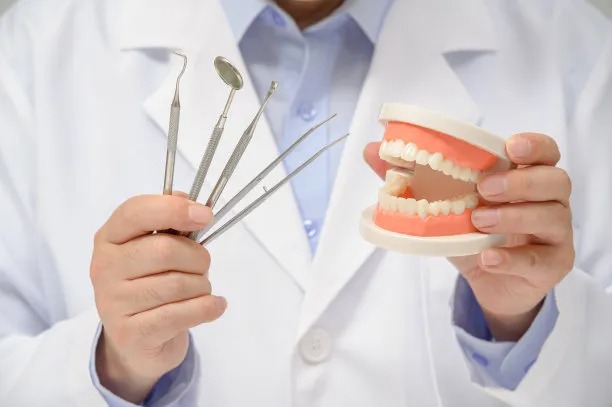Summary: Periodontal disease is a common yet serious condition that affects the surrounding structures of the teeth, including gums and jawbone. This article delves into the various aspects of periodontal disease, including its causes, effective treatment options, and preventive measures. Understanding the risk factors that contribute to the development of this condition can empower individuals to take control of their oral health. Furthermore, we will explore how early diagnosis and intervention can lead to better outcomes. The comprehensive insights provided will serve as a valuable resource for anyone seeking to maintain optimal oral health.
1. Causes of Periodontal Disease Explained

Periodontal disease typically begins with plaque formation, a sticky film of bacteria that builds up on teeth. When not properly removed through regular brushing and flossing, plaque can harden into tartar, making it more difficult to remove. As the bacteria proliferate, they can lead to inflammation of the gums, known as gingivitis, the initial stage of periodontal disease.
Several risk factors can exacerbate the development of periodontal disease. Genetics play a significant role, as some individuals may be more predisposed to gum issues based on their family history. Additionally, poor nutrition, especially diets low in essential nutrients, can compromise the immune system, making it harder for the body to fight off infections.
Other contributing factors include smoking and tobacco use, which significantly impair gum health. Hormonal changes during pregnancy or menopause can also increase susceptibility. Understanding these causes is crucial for effective prevention and management of periodontal disease.
2. Effective Treatment Options Available
For those diagnosed with periodontal disease, various treatment options are available depending on the severity of the condition. The initial approach usually involves professional dental cleanings to remove plaque and tartar buildup. This is typically accompanied by improved at-home oral hygiene practices to maintain the results.
In cases of moderate to severe periodontal disease, more intensive treatments may be required. Scaling and root planing, a deep cleaning procedure that removes tartar from below the gum line, is often effective. Additionally, antibiotic therapies may be prescribed to combat infections and promote gum healing.
In advanced cases, surgical procedures such as flap surgery or bone grafts may be necessary to restore the integrity of the gums and supporting structures. Regular follow-ups with a dental professional are crucial to monitor progress and ensure ongoing health.
3. Preventing Periodontal Disease Effectively
Prevention is key to maintaining optimal oral health and minimizing the risk of periodontal disease. The cornerstone of effective prevention is a consistent oral hygiene routine, which should include brushing teeth at least twice daily and flossing once daily to remove plaque between teeth.
Regular dental check-ups play a vital role in prevention. During these visits, a dentist can identify early signs of periodontal disease and provide necessary interventions before the condition worsens. Dentists also offer personalized advice on the best oral care products and techniques suited to individual needs.
In addition, adopting a healthy lifestyle can significantly reduce the risk of developing periodontal disease. This includes quitting smoking, eating a balanced diet rich in vitamins and minerals, and managing chronic health conditions such as diabetes that can affect oral health.
4. Long-term Benefits of Understanding Periodontal Disease
Understanding periodontal disease is essential for long-term oral health. Being informed about the risks, causes, and appropriate treatments empowers individuals to make better health choices. For instance, recognizing the importance of oral hygiene can lead to more diligent care practices, significantly reducing the likelihood of gum disease.
Moreover, understanding the relationship between oral health and overall health can motivate individuals to maintain regular dental visits. Research has shown a connection between periodontal disease and several systemic conditions, including cardiovascular disease and diabetes, highlighting the importance of proactive care.
By investing time and effort into understanding and preventing periodontal disease, individuals not only safeguard their teeth and gums but also contribute positively to their overall health and well-being.
In summary, periodontal disease is a significant health issue that requires awareness and attention. With understanding of its causes, effective treatments, and proactive prevention strategies, we can significantly improve our oral health outcomes. Prioritizing dental health leads to better quality of life and reduces potential systemic health risks associated with periodontal disease.
This article is compiled by Vickong Dental and the content is for reference only.
Vickong Dental
Vickong Dental is a large medical group established in Hong Kong in 2008 by professors from well-known medical universities in Guangdong and Hong Kong, as well as medical doctors from key national '985' universities (including Master's supervisors and senior professors). The chain of branches brings together expert dentists with PhDs and Master's degrees from Hong Kong and Mainland China, committed to providing high-quality dental treatment.
"Vickong Dental Practices the University Motto of 'Healing and Serving Society,' with a Stable Operation for Sixteen Years. It Has Been honored with Hong Kong Enterprise Leaders's Choice,' and is a Global Trusted Implant Center for the Nobel Implant System. Recommended by Hong Kong Metro Broadcast and Guangdong Television, it Serves Customers from Over Thirty Countries and Regions, Gaining the Trust and Favor of Citizens from the Guangdong-Hong Kong-Macau Greater Bay Area and Surrounding Cities.

Thousands of customers' unanimous praise
The most recognized and highly recommended dental service by customers in the Guangdong-Hong Kong-Macau Greater Bay Area
We Ensure You Receive Detailed Care and Attention Here
Hong Kong standards, Shenzhen prices, Your Trusted English-speaking dentists

Vickong Dental Medical-Grade Instrument Disinfection Process
Vickong Dental Medical-Grade Instrument Disinfection Process

Vickong Dental Chain: A Warm and Comfortable Environment for Treatment






Appointment Hours

Q&A
Why choose Vickong Dental?
Vickong Dental practices the university motto 「Medicine to Benefit Society」, with each branch bringing together highly qualified dentists with doctoral and master’s degrees from Hong Kong and the Mainland, and has maintained seventeen years of steady operation。Recipient of 「2024 Hong Kong Enterprise Leaders Brand」, 「2025 Hong Kong Enterprise Leaders Brand」, a Nobel Biocare Global Trusted Implant Center, and a brand recommended by Metro Radio Hong Kong and Guangdong TV。
To date, we have served customers from more than thirty countries and regions,earning exceptionally high word-of-mouth recognition and trusted recommendations from residents across the Guangdong-Hong Kong-Macao Greater Bay Area and surrounding cities
We have eight major branches in Zhuhai、Shenzhen,and a consultation and service assurance center in Hong Kong,so you can book a free consultation at any time for any questions,which is very reassuring.
If I do not accept the quotation after the CT scan, will I be charged??
No! As long as the actual treatment has not started, you will not be charged any fees.
Will there be any additional charges during the treatment process?
No, there won’t be any additional charges. Before treatment begins, we will clearly explain the treatment plan and its corresponding fees. Only after the patient agrees and signs the consent form will we proceed with the dental service.
Can I pay in Hong Kong dollars?
Yes. Vickong Dental accepts payment in Hong Kong dollars. The amount will be converted based on the exchange rate of the day, and the applicable rate will be clearly communicated to you in advance.
Can I reschedule my appointment at any time?
Yes. Please contact us via **WeChat** or **WhatsApp** as early as possible, providing your original appointment time and details, along with your preferred new date and time slot for rescheduling.













